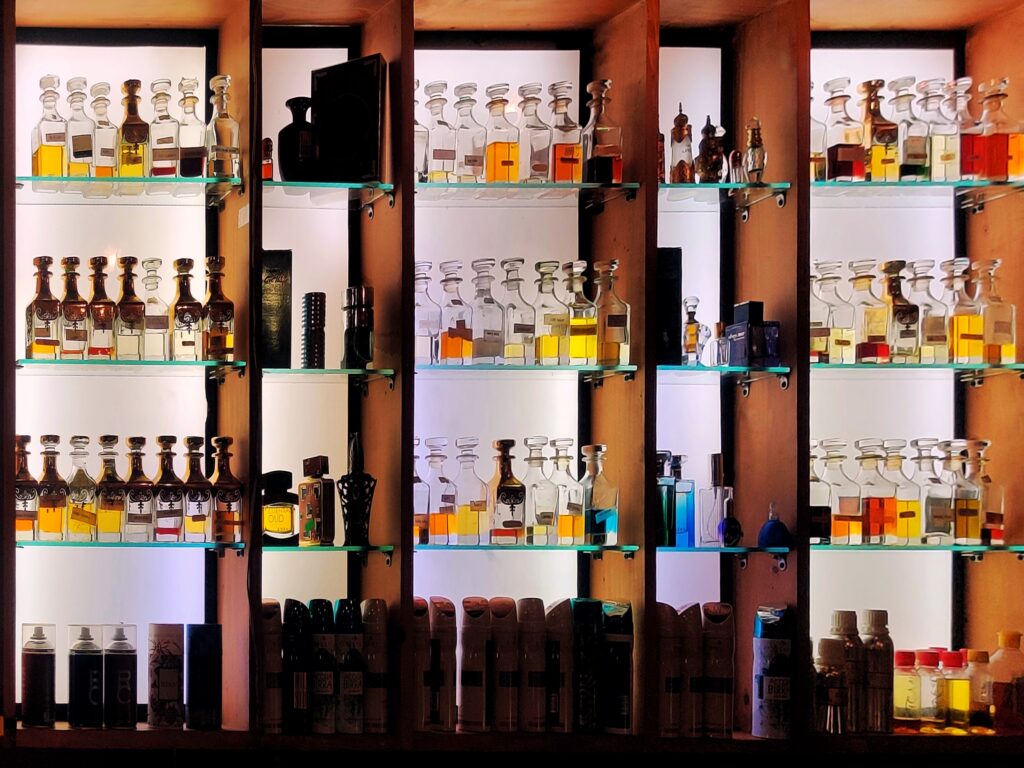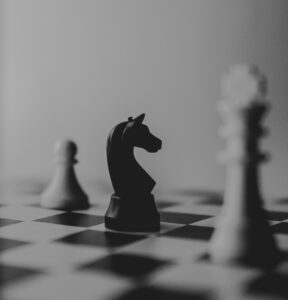When you first step into the world of fragrance, there can be some terms which can get quite confusing. Today we will talk about some common fragrance terms you need to know. By knowing what they meant, it will be easier for you to seek reviews and understand what the reviewer is talking about when they mention a specific term.
Here goes the list list in no particular order;
1. Juice
A common term you will hear when someone is talking about perfume is the juice. No, it has nothing to do with a drink. Juice in the fragrance context means the scented liquid inside the perfume bottle.
2. Turned Juice
When you hear someone say turned juice or the juice is turned for perfumes. It means the scent has changed / become sour. It’s similar to the experience of eating a rotten food, only for scent.
3. Composition
The combination of notes and accord in perfume is called a composition. It’s what makes a perfume unique from the others.
4. Notes
Notes mean the individual scent placed into the perfume composition. It’s comparable to individual keys on a piano.
5. Accord
Accord is a combination of notes from the same scent family profile. Example, woody accord is a combination of woody notes such as cedar wood, sandal wood and vetiver.
6. Blending
Blending is the action of combining the notes and accord in perfumery. The blending method usually determines the way a perfume will perform later on. Smooth blending means the blending is well-done and pleasant to the notes. Harsh blending means you can still smell the alcohol or raw side of the individual notes that feels harsh on the nose.
7. Silliage
Silliage is the lingering trail of perfume in the air that remains after you leave. When someone says a perfume has strong silliage, it means the trail of the perfume linger around long after that person has exited the room.
8. Projection
Projection is how far your perfume could be smelt by others. Weak projection means your perfume only perform close to the skin and you’re probably the only one who can smell it. Strong projection means your perfume can be smelt by someone over a meter or two away from you.
9. Longevity
Longevity means how long your perfume actually last. Weak longevity usually ranger around 2-4 hours. Moderate longevity last somewhere between 5-7 hours. Strong or great longevity usually last above 7 hours.
10. Beast Mode
Beast mode is an informal term people usually use for perfumes with excellent or above the average projection, longevity and silliage.
11. Designer Perfumes
Designer perfume are perfumes that are released by fashion designer houses. Examples of designer perfumes are Dior, Chanel, Tom Ford, Marc Jacobs, Mugler, Burberry, Hermes, Gucci and Prada.
12. Niche Perfumes
Niche perfumes are perfumes that are released by brands or perfume houses that specialize in creating perfumes and other olfactory related products and do not have a fashion house under its name. Examples of popular niche brands are Creed, Penhaligon, By Kilian, Amouage, Montale, Mancera, Xerjoff, Parfums de Marly and Le Labo.
13. Clones
Clones is a term for perfumes that was created specifically to smell similar to another existing perfumes. Some perfume brands specialize in clone perfumes such as Armaf and Dua Perfumes.
14. Exclusive Lines
Exlusive lines mean a particular line from designer houses that leans more toward the niche sides. The perfumes are usually more complex and contain higher quality ingredients compared to the usual line. Some designer brands who release exclusive perfume lines are Dior, Chanel, Tom Ford, Guerlain, Carolina Herrera, Hermes, Gucci and Bvlgari.
15. Anosmic
Anosmic is a term people use when they suddenly lose their sense of smell. In the perfume world, it is used to describe people who cannot smell their perfume yet others are able to. It’s common with perfumes that contains ingredients and notes such as Ambroxan.
16. Decant
Decant is a term for perfume samples. However, unlike normal perfume samples that was produced by the perfume house or brands itself, it’s a sample produced by individuals who are transferring the juice from the original bottle to smaller size bottle. Decants usually come in 5 ml and 10 ml bottles.
17. Blind Buy
One of the fragrance terms you will often hear is blind buy. Blind buy is a term for when someone purchase a perfume without sampling the perfume first.
18. Concentration
In perfume term, concentration means the amount of raw essential oil, fragrance oil and extracts used to create the perfume. The higher the concentration, the more potent a perfume will be.
Conclusion
Those were some perfume terms that are commonly used in the perfume industry and world. Hope they were useful for you and happy exploring.













